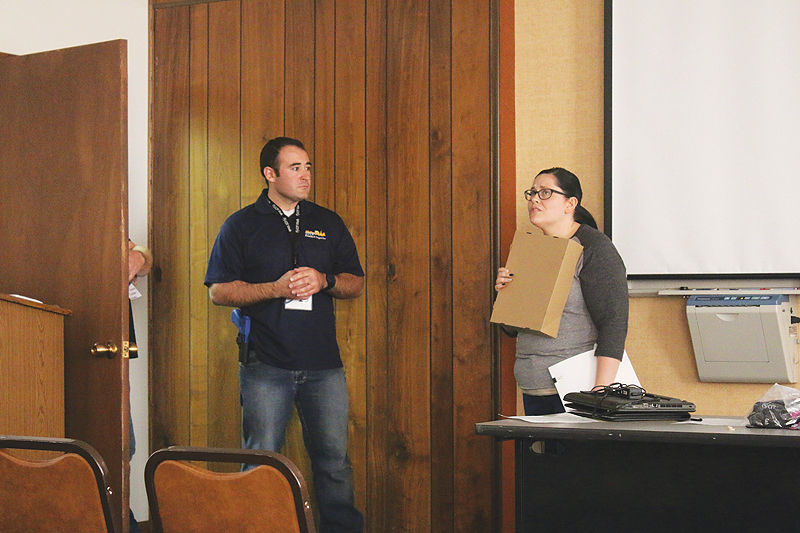The Price City Police Department hosted and participated in Crisis Intervention Training last week, teaching officers how to handle calls that come in from someone who may be mentally ill or delusional.
“Statistically, one in five people in our society are suffering from some sort of a mental illness, whether diagnosed or undiagnosed and as law enforcement, we are the first ones that come in contact with them,” explained Price City Sergeant Kelly Maynes, this year’s regional coordinator for the training. “And [we’re] getting a better tool to understand how to deal with people in that situation and better options as to how we deal with that.”
The program began in 1988 in Memphis, was brought to Utah in 2000, and officers in the area began training in 2011. The Price City Police Department is the regional director for the area, with officers attending from Carbon, Emery, Grand and San Juan counties. The department also works in conjunction with Four Corners Mental Health for the training.
Crisis Intervention Training consists of 40 hours of training, spread out over a week. The officers were at the Carbon County Fairgrounds for much of the week, doing classroom-type work, before working through scenarios on Friday. Also part of the training is visiting the state hospital and speaking to and interacting with patients in care.
“We deal with people in crisis every day, that’s our job,” said Maynes. “This helps us a lot… we have a lot in our area that are suffering from mental illness and we’re the first ones to get called on them.”
After discussing different tactics in handling a call from someone suffering from a mental illness, or symptoms that look like a mental illness, throughout the week, the officers then put the training into practice with scenarios that have been pulled from actual law enforcement incidents and case law.
Some included in Friday’s training were a delusional jumper, who believed his shoes would make him bounce; a transient wandering around a park or alley, who seems to have a schizoaffective disorder, or schizophrenia; and a neighbor dispute in which a woman believes her neighbor is spying on her with cameras in her apartment.
In the case of the delusional jumper, Maynes explained how officers must learn to use the tactics they’ve learned because, unlike the side of a freeway where there is an artificial barrier that an officer can have the ability to pull someone back over, there is no barrier between an officer and the edge of a roof.
“This one gives us the ability to have officers understand that you have to talk, you have to be able to use these skills, you have to be able to recognize that you just can’t tell somebody ‘What? Youre shoes are going to bounce? They can’t do that, you’re crazy.’ Because he’ll go ‘Oh, they aren’t? Let me show you,’” explained Maynes.
Maynes also detailed how the training is another way to add to what the officers are able to handle in terms of calls. A person with a mental illness calls because they don’t feel safe, whether they verbally share that, or an officer reads that in a situation. Officers with this training can more effectively deescalate a situation and get a person the proper help.
“This training really helps us get everybody the tools to have another feather in our cap so to speak to help people in a crisis,” said Maynes. “It just helps you to be a better officer.”
Officers participate in Crisis Intervention Training

Officers participated in numerous crisis scenarios during the training.
